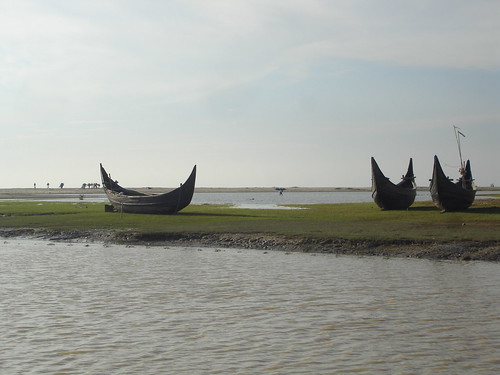
Bangladesh beauty ..SPECIAL
Cox-Bazar:
Places of Tourist Attraction........
-Cox's Bazar
Cox's Bazar is charmingly situated on low range of sand hills between the Baghkhali and the Bay of Bengal with a long open beach towards the sea. The town is named after lieutenant Cox, who died here in 1798 after he had established a colony of Mogh who sought shelter in British territory after the conquest of Arakan by the Burmese two third of the population of the town are descendants of these refugees. Miles of golden sands towering cliffs, pagodas, Buddhist temples and tribes, delightful seafood this is Cox's Bazar, the tourist capital of Bangladesh. Having the world's longest (120-km) beach slopping gently down to the blue waters of the Bay of Bengal. Cox's Bazar is one of the most attractive tourist spots in the country.

Ramu
This is a typical Buddhist village, about 10km. from Cox's Bazar, on the main road to Chittagong, there are Monasnesties, Khyangs and Pagodas containing images of Buddha in gold, bronze and metals inlaid with precious stones. One of the most interesting of these temples is on the bank of the Baghkhali River. It houses not only interesting relics and Burmese handicrafts but also a large bronze statue of Buddha measuring thirteen feet high and high and rests on a six feet high pedestal. The wood carving of this Khyang is very delicate and refined. The village has a charm of its own. Weavers ply their trade in open workshop and craftsman make handmade cigars in their pagoda like houses.
Moheskhali
10 kilometers by speedboat to the north west of Cox's Bazar and standing on a hill is the Moheskhali island. There is a 165 years old temple known as Adinath temple. With the interesting history of its discovery, it is a most attractive spot especially during the festive month of falgoon (march-April) when sea fishing near the Moheskhali Island is a rewarding experience.

Sonadia Island
Just oppsite across Cox's Bazar, this island is a paradise of migratory birds like petrel, geese, ducks, curlew, spine, reshank, lapwing, whim bird and other birds and water fowls. The western side of the beach is sandy and different kinds of shells are found on the beach.
.jpg&w=314&h=216)
Himchari
18 kilometers south from the Cox's Bazar beach is a beautiful picnic and shooting spot. It is a continuation of the beach with background of palms and bamboo's. the famous "Broken hill" is a rare sight. Angling in the streams and ponds in the adjoining valley provides a lot of fun and excitement another charms is the "Christnas trees".

Inani
Inani about 32 kilometers to the south of Cox's Bazar and just on the beach, with the sea to the west and a background of steep hills to the east, in 210-14' N latitude and 920-03' E, longitude. It is only half an hour's drive from Cox's bazaar and an ideal place for hunting, sea bathing and picnic.
Whykong
Whykong is about 39 kilometers to the north of Teknaf and 53 kilometers to the southeast of Cox's Bazar. There is a forest Bunglow on a small hillock commanding a fine view of the Naf, the parret island and majestic hill range of the Arakan beyond. This is an ideal place for hunting Shiker of all kinds.

Teknaf
80 kilometers south of Cox's Bazar is a pleasure spot on the West Bank of Naf river. A small town, it has arrangements for picnic hunting and boating. A trip by jeep to Teknaf from Cox's Bazar at dawn, is a rare experience.

St. Martin's Island
13 kilometers south west of the southern tip of the mainland, is a small coral island being fringed with coconut palms, varieties of rare sea shell, lime stones corals, and marine life like flying fishes, dolphins and sea tortoises.


